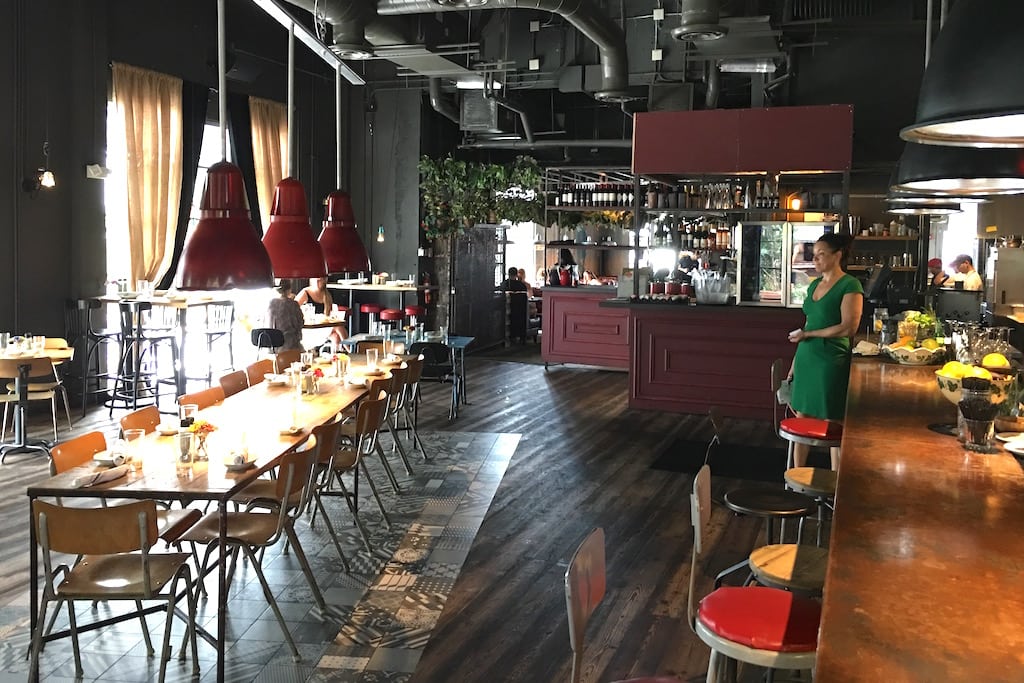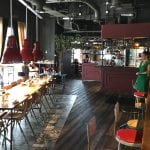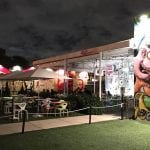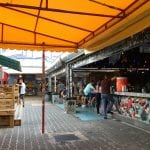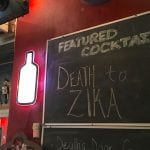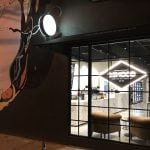Skift Take
Maybe a silver lining to Zika's toll on Wynwood is that the district is getting a huge amount of global press that could pay off when everything is back to normal.
- Wynwood Diner opened one year ago in August 2015.
- Wynwood Kitchen’s outdoor seating and Wynwood Walls are typically much busier than this.
- Wood Tavern is generally the busiest bar in Wynwood.
- The Butcher Beer Garden & Grill has laid off staff like many other restaurants.
- The general sentiment at The Butcher and in Wynwood.
- Graffiti mural in Wynwood.
- Graffiti mural in Wynwood.
“It’s like a natural disaster,” a bartender in Wynwood, Miami told me last Thursday night.
He was speaking about the economic impact of the Zika virus on small businesses in Florida’s most creative and trendy neighborhood.
Located just north of downtown Miami, and directly west across Biscayne Bay from South Beach, the Wynwood Arts District typically attracts both locals and tourists throughout the week.
Wynwood is spread across a few square miles of old textile warehouses that have been converted into art galleries and an eclectic gauntlet of restaurants, bars, and shops (see our previous feature about the neighborhood here). Hundreds of exterior walls are brightly covered in brazen, professionally-painted graffiti that gives Wynwood its signature, tropical hipster image.
This is the year that Wynwood really came into its own. The recent opening of more daytime restaurants and retail have long been needed to complement the robust evening bar business.
That all went sideways on July 29 when the Florida Department of Health (FDH) identified Wynwood specifically as one of the source locations for the first cases of Zika in the continental U.S. determined to be locally transmitted by the aedes aegypti strain of mosquitos.
On August 1, The Centers for Disease Control & Prevention (CDC) issued a travel advisory warning pregnant women to avoid the area. Zika’s potential impact on unborn babies is well documented.
For anyone other than pregnant women, the FDH reports that: “The Zika illness is generally mild with a rash, fever and joint pain. [However], CDC researchers have concluded that the Zika virus is a cause of microcephaly and other birth defects.”
The CDC states: “Zika is usually mild with symptoms lasting for several days to a week. People usually don’t get sick enough to go to the hospital.”
On Thursday night (August 25) after dark, the outdoor section of the Wynwood Kitchen restaurant was almost empty, as was the grass in front of the graffiti-emblazoned “Wynwood Walls” directly adjacent. Those seats would have been full prior to July 29, and throngs of tourists would have been admiring the Walls.
Having lived in Miami for over a decade before moving to New York last summer, and a once frequent visitor to Wynwood, I was immediately struck by the absolute stillness in the streets throughout the district.
“Our business is down about 75 percent,” I was told by a staff member at the year-old Wynwood Diner on the district’s main drag. “Someone’s going to go out of business soon.”
At The Butcher Shop Beer Garden, an employee told me the restaurant had to lay off five people, and liquor orders have been cancelled. “It’s like that everywhere,” she said, adding that business was off by more than 50 percent.
Some indoor bars like Gramps had a small crowd of 30-40 people on Thursday night, but the outdoor back garden was empty. It was the same situation at the large outdoor bar at Wood Tavern around sunset, which is typically one of the busiest spots in Wynwood on Thursdays.
The district doesn’t have any hotels so it’s more difficult to officially track the economic impact of Zika by comparing room bookings year-to-year.
“From the reports we’re getting, business in Wynwood seems to be down between 40-60 percent,” said Rolando Aedo, senior VP of marketing and tourism at the Greater Miami Convention & Visitors Bureau.
What is easily identifiable, and this is uncanny for Miami in the summer, I didn’t see one mosquito in the 24 hours I was walking around Wynwood and staying in an Airbnb there.
“I can promise you that Wynwood is the most mosquito-free neighborhood in the United States right now,” Aedo told me. He explained that “a lot of layers” are involved in suppressing the mosquito population in Wynwood.
Local, County & State Move Into Action
The mosquito eradication program started earlier this month with City of Miami workers going door-to-door to educate homeowners about packing garbage properly and removing standing water. Following that, Miami Dade County, the Florida Department of Agriculture, and the CDC instituted an aggressive schedule of aerial insecticide spraying throughout the neighborhood.
Meanwhile, the Florida Department of Health has been tracking the spread of Zika cases, consulting scientific and medical communities, and advising policy.
On August 19, however, five new cases of the virus were reported to have been locally transmitted in Miami Beach, where aerial spraying is not effective due to the high-rise hotels and strong trade winds. See the Miami Herald’s statewide Florida Zika virus tracker here.
Aedo downplayed the long-term impact of Zika by suggesting that the ongoing eradication efforts and the drop in temperature starting next month will stem the spread of the virus. He also suggested, “Florida has a lot of experience dealing with disruptions,” and he said, “Other viruses around the world like the Bird Flu, SARS, H1N1, Dengue, and others have come and gone. This is nothing new.”
On Friday morning last week, Florida Governor Rick Scott arrived in Miami Beach to meet with Miami and Miami Beach’s mayors, numerous state and local council representatives, tourism officials, and business leaders to ensure that all of the private and public stakeholders are sharing the same information about Zika.
Scott is going to Washington, D.C. on September 6 to meet with federal authorities to lobby for additional funds to continue combatting the virus. Speaking to Aedo on Friday afternoon, he said the Miami Beach meeting was “the most powerful coalition of Florida leaders I’ve seen in one room in 30 years.”
At Wood Tavern on Friday around 6 p.m., there was a considerably larger crowd than the night before. That suggests that the locals are keeping Wynwood afloat, at least for now.
Aedo said the bureau has been aggressive in getting local tourism stakeholders to support Wynwood. The bureau might also want to suggest that local businesses provide bug spray. My Airbnb host had a can of Off that I used Thursday night, but I forgot to use it again Friday morning when I checked out of the listing.
There are no convenience stores that I know of in Wynwood, or at least none that I could find, and none of the restaurants or bars seemed to have any cans of bug spray prominently positioned. I spent all day Friday walking around outdoors without any protection, and apparently I’m not alone in that regard.
The people I spoke to at Wynwood Diner, Gramps, Wood Tavern, and The Butcher told me that many Miami locals aren’t bothering to use bug spray anymore than usual. It goes without saying that tourists should be cautious any time they visit a tropical city, but avoiding Wynwood today borders more on being paranoid, in my opinion.
“The best thing that could happen is if Zika spreads everywhere so the focus isn’t all on us,” one of the local employees bitterly told me. There’s a sense among some residents that Wynwood is being pinpointed to distract negative attention away from South Beach. That seems unlikely, but it does sum up the fear and frustration among the people here in Miami’s creative heart.
The Daily Newsletter
Our daily coverage of the global travel industry. Written by editors and analysts from across Skift’s brands.
Have a confidential tip for Skift? Get in touch
Tags: florida, health, miami, tourism, zika
Photo credit: Wynwood Diner opened one year ago in August 2015. Like other businesses in the Miami neighborhood, it's seen a decline of visitors following Zika warnings. Skift
